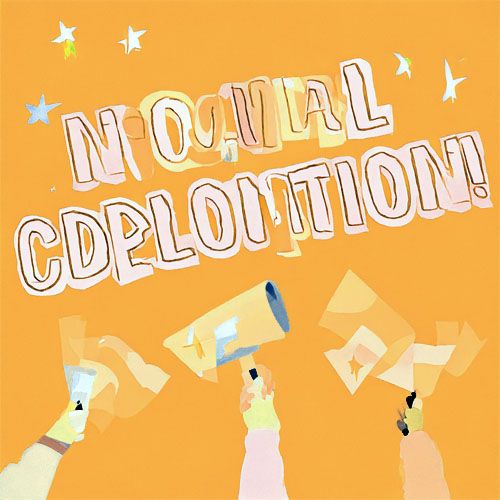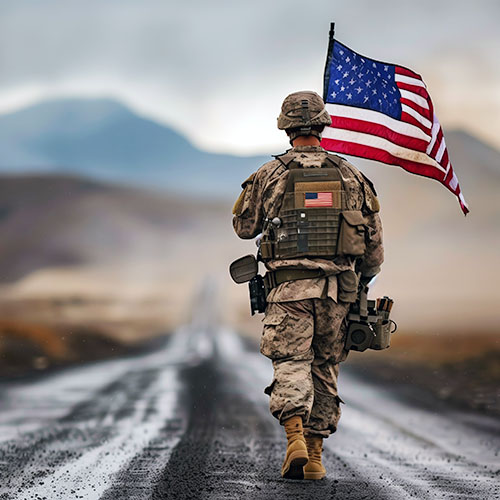Tim O’Brien is the Vietnam War’s foremost bard, a soldier-poet who’s written about combat and the fragility of peace for decades. A new documentary reveals the literary lion still has one more book in him — and hard truths for us all.
The War and Peace of Tim O’Brien
Literary documentaries serve a curious function. Most follow writers at the end of their careers as they look back on their lives and work, so they’re pensive, even wistful. This can be interesting in its own way, especially to other writers (raises hand), but there’s an inactive reminiscent quality that fills a good many. Lives spent in the letters can indeed prove worthwhile and fulfilling, but that doesn’t mean they make for riveting television.
A lively exception to this norm is the documentary The War and Peace of Tim O’Brien. O’Brien, of course, is the standing godfather of American war literature, author of modern classics The Things They Carried and Going After Cacciato, and more recently, the memoir Dad’s Maybe Book. In the documentary, he’s presented as a literary lion looking back on his life and career, but there’s a real dynamism at work, too, which is a testament to the role he continues to occupy for generations of readers spellbound by his meditations on war and memory.
The result is a tremendous, multidimensional film, one that deserves the wide audience and critical acclaim coming its way. There are three primary reasons for the crispness to this documentary, to my mind: one, that O’Brien, unlike so many of his contemporaries, remains a fixture in American classrooms and our understanding of foreign conflict; two, the open access O’Brien and his family provides the film crew; and three, the narrative thrust of the documentary has grounding in the active present — O’Brien’s pursuit of one last book, a race against time and through the obstacles of everyday life.
“We tend to want artists to be these unencumbered geniuses with no families, no money worries, etc.,” director Aaron Matthews wrote me in an email. “O’Brien is encumbered. A lot of people can relate [to that.] So I trusted that if I followed Tim and his family around with a camera, a compelling story would emerge. And it did.”
One of the great strengths of O’Brien’s creative work has been how he connects the past with the present, memory with the future, storytelling with reality. (“The thing about a story is that you dream it as you tell it, hoping that others might then dream along with you … memory and imagination and language combine to make spirits in the head,” he wrote in “The Lives of the Dead,” in The Things They Carry.) One of the most powerful scenes in The War and Peace of Tim O’Brien occurs in the author’s study, as he reads through emails exchanged with men from his infantry platoon in Vietnam. Talk turns to a junior officer O’Brien served with, a man who collected Viet Cong ears and the like.
Those familiar with O’Brien’s books have seen this man in various forms. He was cruel and committed to his wartime cruelty. O’Brien is kind. So, some 50 years after they walked paddy fields and jungle trails together, O’Brien wonders if his writing made this man’s postwar life harder. It’s wrenching and human in a way most literature never attains, let alone conversations about literature.
According to Matthews, he was rebuffed when he first approached O’Brien, now 74, with his idea for the documentary. But he persisted, and about a year later, O’Brien and his family agreed. Production began in January 2016, and filming continued through late 2019. The result is not a valentine to a great writer, but a layered chronicle of a man’s life, a man who happens be a great writer. It documents the tedium of trying to write a good book that matters. It also captures O’Brien’s many public readings and speeches, his fascination with magic and illusion, a nasty bout with pneumonia and family squabbles — with O’Brien chain-smoking through it all. O’Brien’s family — wife Meredith and teenage sons Timmy and Tad — know when he’s elsewhere, his mind still mired in his work. And he can’t help it. It’s who he is; it’s what he does. He fights it as best he can. But he’s a writer, and no writer worth their salt can ever fully embrace the moment.
Though associated with war writing, and a huge inspiration for my generation of military veterans — the documentary shows this in real-time with vets and fresh recruits showing up in droves to meet him — O’Brien has long considered himself a “peace writer” rather than a “war writer.” Some piece of him still remains a reluctant draftee considering what the true choice of courage is: to go fight in Vietnam or dash across the border to Canada in protest.
Without spoiling the particulars of the scene, there’s a point in the film where O’Brien ponders whether the country he loves has forgotten how to pursue peace. If so, does that mean his life’s work has failed? O’Brien’s not an activist, but there’s a strain of radical truth-telling in his work that demands readers and citizens not look away from the wars — and the ravages therein — being carried out in our collective name. The conversation O’Brien has with the camera on this is sorrowful, damning and captivating, all at once.
“Those book signings were intense,” Matthews recounted in his email. “I was exhausted for Tim. People line up for him like he’s a rock star. They want a piece of him, whether that’s in the form of an autograph, a handshake or a photo. And he obliges.”
Did anything surprise Matthews at these events?
“I wasn’t prepared for the number of young people who told Tim with glee, ‘This is the only book I’ve ever read!’ I think that breaks his heart, when he hears that. But not as much as hearing that soldiers decided to join the military after reading TTTC. Like almost everything else with Tim, it’s complicated. Even the unadulterated joy people feel for him and his work is never just easy adulation.”
Speaking of war and memory, here’s one of my favorites: Tim, Iraq vet and writer Eric McMillan and myself on a porch at the Sewanee Writers’ Conference in Tennessee. It’s high summer in 2019, and cicadas are sounding out in force. We’ve all had a few, and it’s getting near time to head off to bed. The question of “war writer” comes up, as a label, as an idea, as a condemnation.
O’Brien laughs in his chair and lights up another cigarette, the flame licking against the black of a deep Southern night. “It’ll follow you guys your entire writing lives,” he said, regret and humor packed in his words. “People will find war in your stuff whether you put it in there or not.”
He takes a drag. “Vonnegut told me the same thing back when. He was right.”
The War and Peace of Tim O’Brien brims with wisdom and grace like that in every scene, every conversation. You’ll feel like you’re having a beer with him on a porch, talking about that time Kurt Vonnegut passed along a pithy bit of advice that carries endless multitudes in it. I can’t recommend it enough. It’s available now everywhere you rent and buy movies.
Matt Gallagher is a U.S. Army veteran and the author of three books, including the novel Empire City. You can read much more from Matt in these pages.
More information can be found at timobrienfilm.com.



















